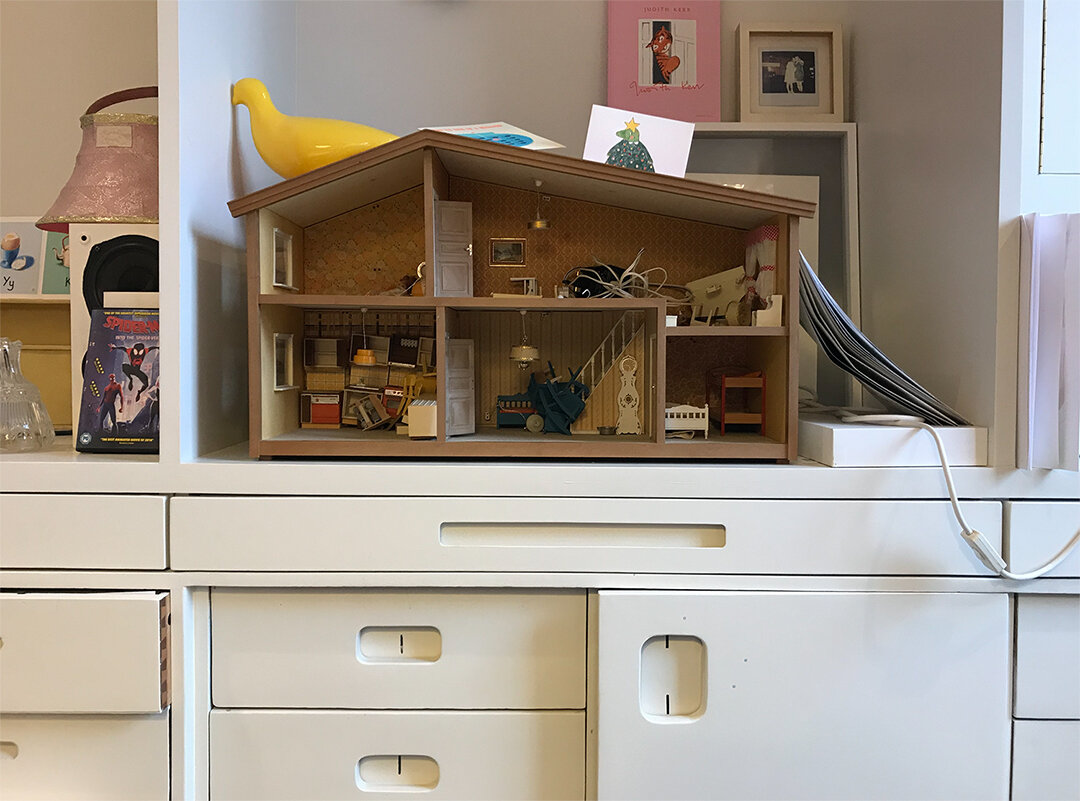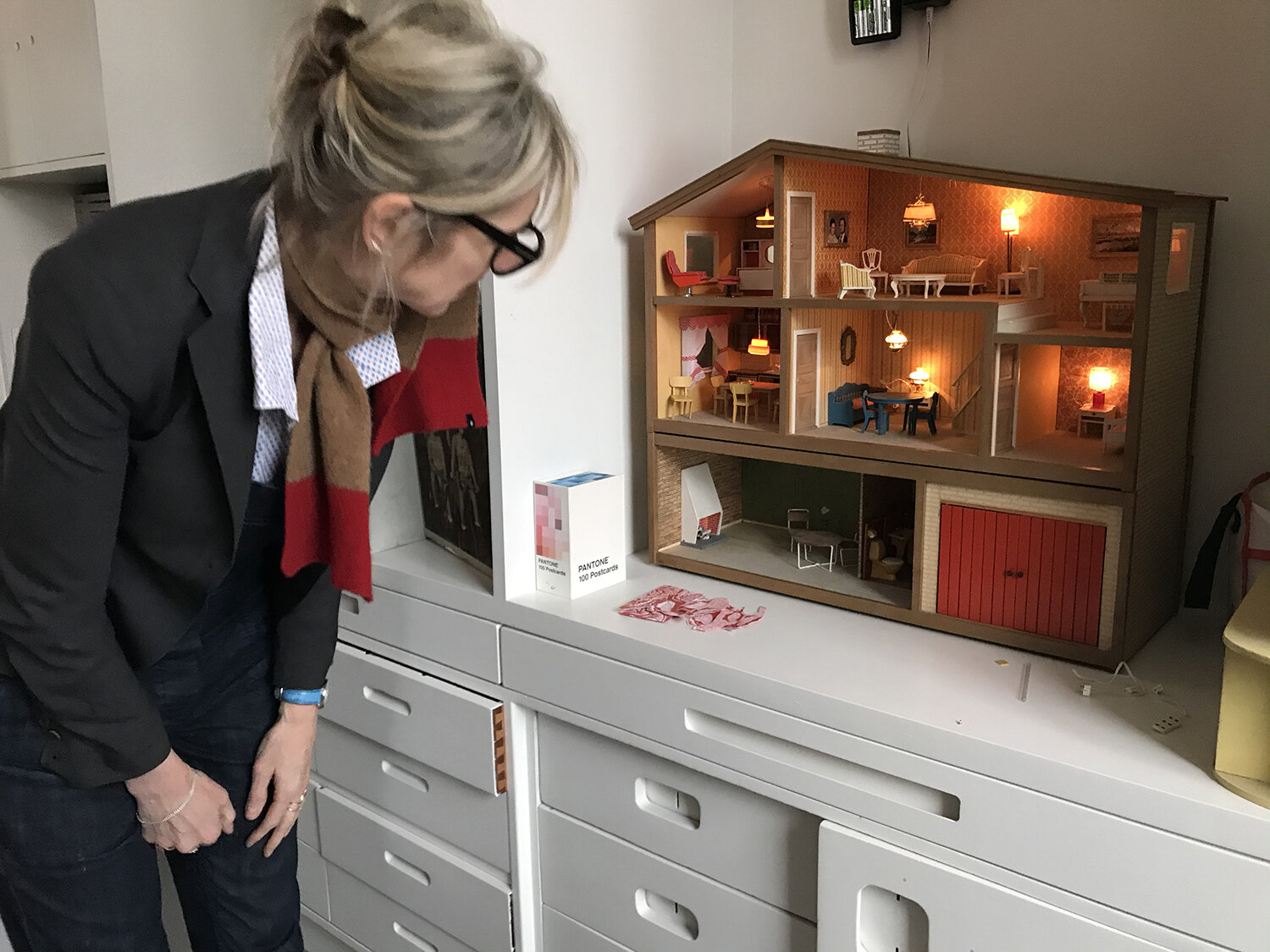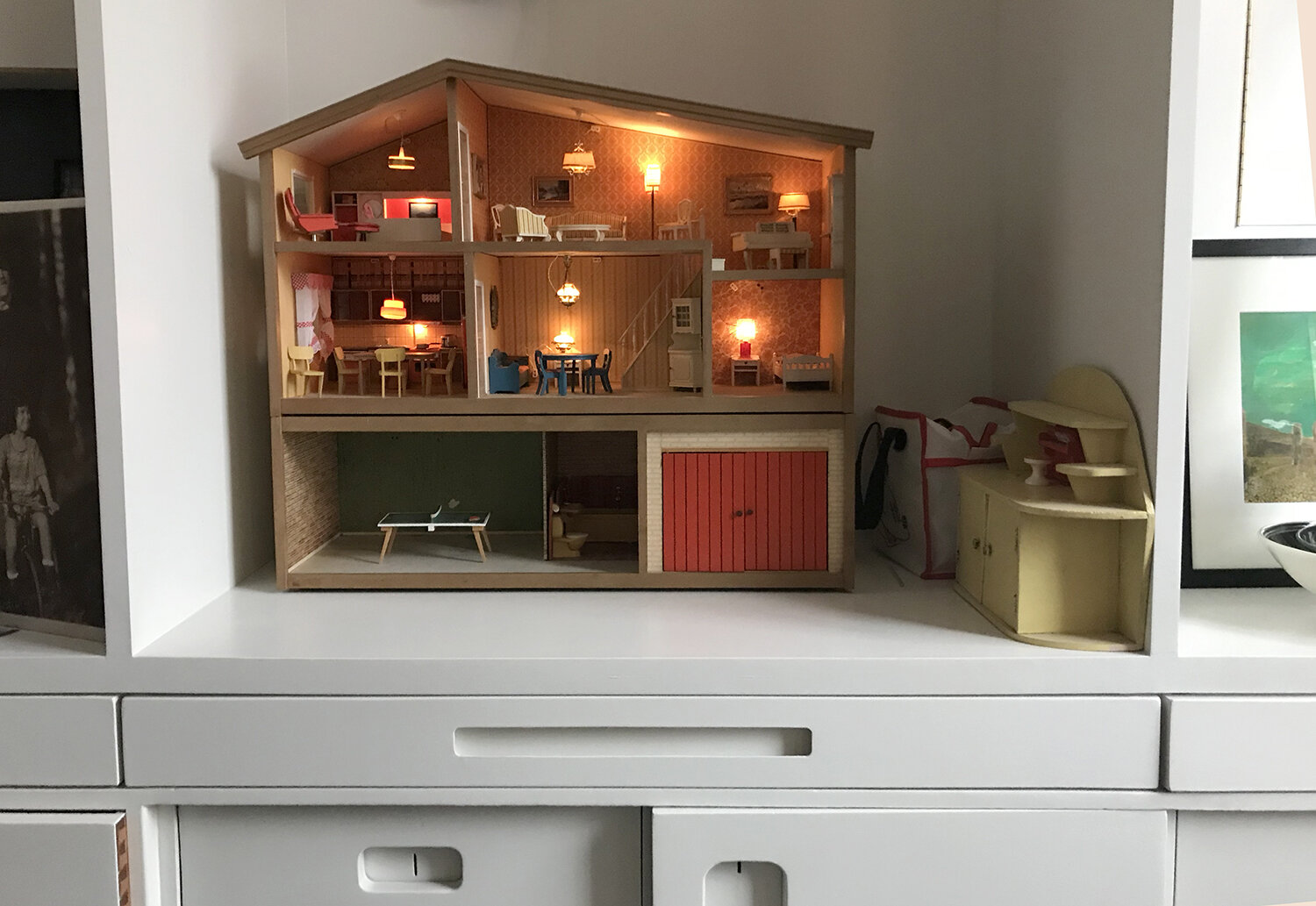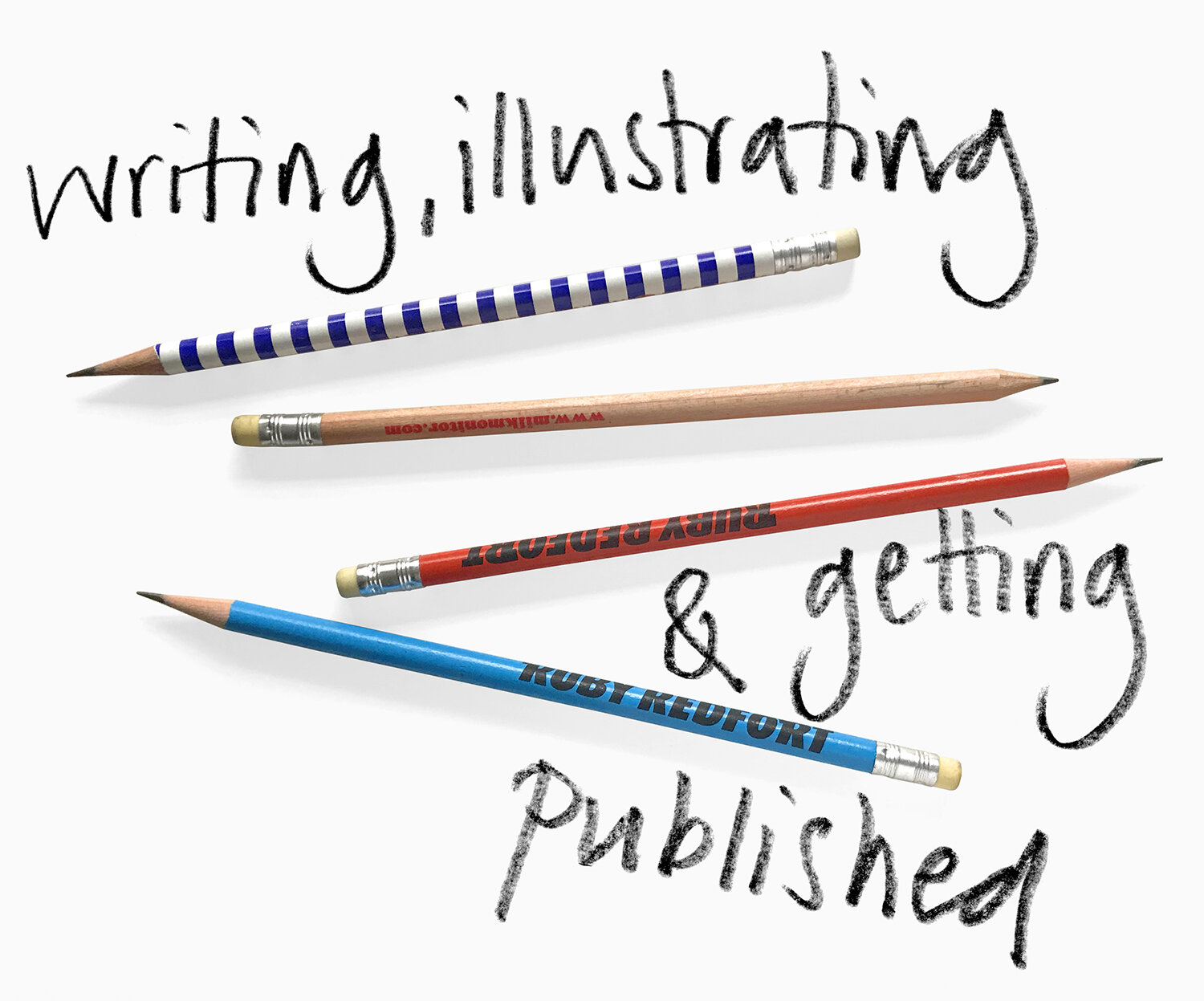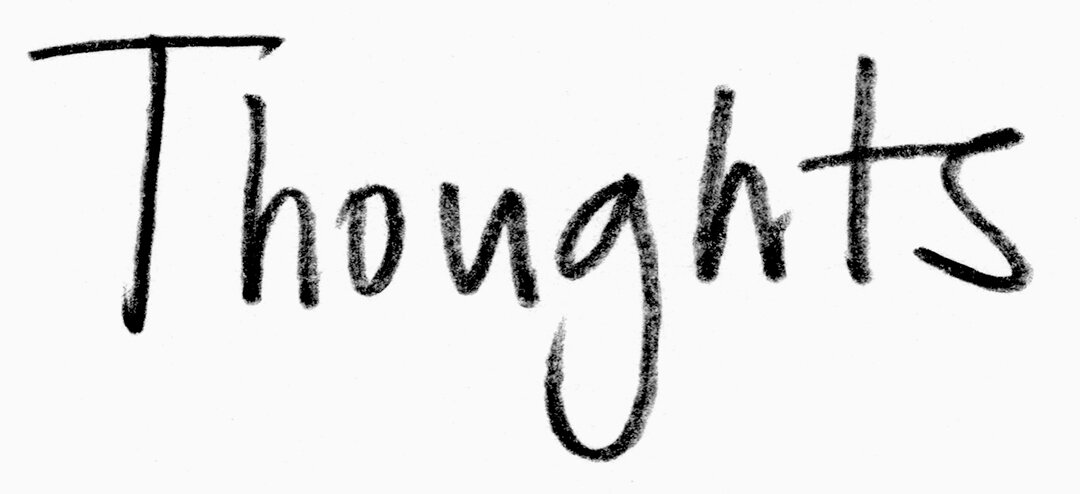Courses
I am often asked about The Princess and the Pea, and how I made all the miniature sets and furniture. The answer is I learned pretty much everything from Pat Cutforth who built me my very first dolls house when I was seven.
For many years Pat has run courses from her Wiltshire farm where she has a wonderful workshop, kitted out with specialist miniature tools and supplies. She is an inspiring teacher and it is amazing what one can achieve in just a few days. Until recently she ran courses where people could bring along a project or learn specialist techniques taught by visiting experts. This is where I learnt most of what I know when it comes to working in miniature. There will be other people who can teach these skills and if you are interested then it is probably worth checking the www.dollshouseshowcase.com and www.miniature.co.uk
My dollshouse on exhibition at The House of Illustration. (Photo © profuselyillustrated.com)
Doll Houses
If you are looking to buy a dolls house, then Pat also sells second-hand ones, donated to raise money for Cancer Research UK. She has quite a range of dolls houses and dolls house shops – see her website for sale dates.
Fairs
The Kensington Dolls House Festival: This fair takes place twice a year, in May and December and has wonderful exhibitors – some of the best in the world of miniatures. Quite a few of the props used in the Princess and the Pea sets came from here. Of course there are many other dolls house fairs which take place all over the UK. This one just happens to be local to me:
Another favourite fair is Miniatura which is also held twice a year at Stoneleigh NAEC just east of Birmingham:
Finding information
My best advice for anyone wanting to get published as a writer or illustrator for children is to get hold of a copy of the Children’s Writers’and Artists’ Yearbook. There is advice from publishers, agents, authors and illustrators. Information about the process of submitting work and finding an agent or publisher. Lists of agents and publishers and useful contacts, as well as individual accounts of personal experiences from writers and illustrators.
Books on Writing
I also find reading books about writing helpful.
Stephen King’s, On Writing, Anne Lamott’s, Bird by Bird and Patricia Highsmith’s, Plotting and Writing Suspense Fiction. These are all books I found and still find helpful. None of them is specifically about writing for children but they are about writing well and they can teach you a lot.
Tips
Looking at a variety of children’s books and working out what’s good about them or in some cases not so good about them. Working out which publisher publishes the books you particularly admire.
Does anyone publish the kind of book you would like to create?
Do you like the production on their books?
Do you like the design?
Does the general content of their books have something in common with your work?
Most picture books are written across thirty-two pages. It is much cheaper for the publisher to print a book of this standard page length so worth keeping in mind as you write since they may be more inclined to take your book if it fits this format.
Does the general content of their books have something in common with your work? Most picture books are written across thirty-two pages. It is much cheaper for the publisher to print a book of this standard page length so worth keeping in mind as you write since they may be more inclined to take your book if it fits this format. Printing costs have gone up but book prices have gone down. It isn’t easy to get published but neither is it impossible (though it can feel that way). You do need a lot of determination and very often a means of supporting yourself while you get established.
It is important to add, that having something to say and your own way of saying it should be the reason that you want to get into this business; derivative work rarely makes the big time even if it does get published. Personally, I don’t see the point of going to all that effort if you don’t feel passionate about what you are creating – it isn’t an easy career and the money can take a while to come in. Despite what they say in the papers, most people do not make a fortune as writers or illustrators but if you love what you do then it is very rewarding.
Publishers are always looking for that new and original voice or style, sometimes they aren’t ready to take a chance, sometimes they miss it but if you have a really good ‘something’ then I always feel someone’s going to spot it in the end.




